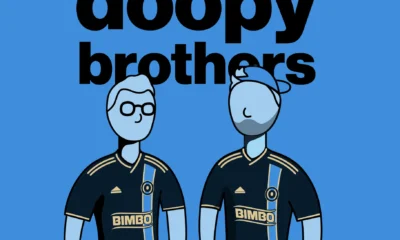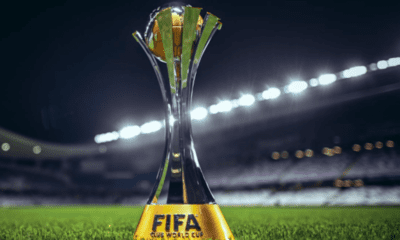Brotherly Game
Union snakebit by an organized and opportunistic Miami side
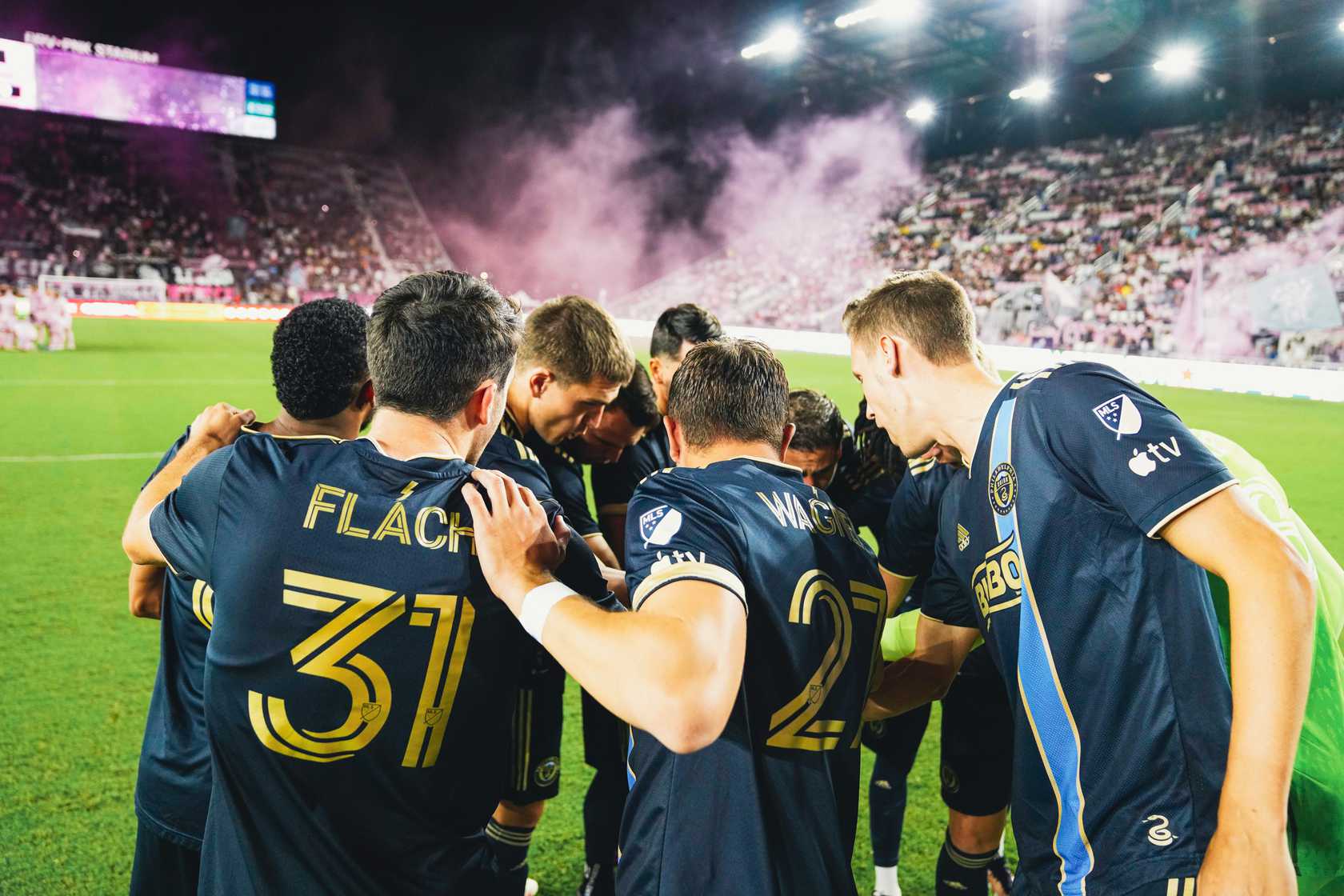
The Union fell 2-0 to Miami on the road on Saturday night behind spectacular efforts from distance from Corentin Jean and Robert Taylor.
The Union struggled to create a lot of clear cut chances on the night and were often missing the extra sharpness needed in the final third to do so.
The Union did enjoy an xG advantage of 1.1 to 0.5, but they didn’t deserve to win the game. Both goals were unlucky to concede in a purely objective sense, but credit must be given to both strikes, which were exceptionally clean.
Andre Blake probably could have done better on Jean’s opener, which he got a palm to, but it was placed towards the corner with power. Taylor’s strike was in fact a goal of the year contender, coming on an absolutely sumptuous volley from outside the box after a headed touch to control. Both shots had a 0.025 xG in MLS’ model.
Sometimes, you tip your cap to otherworldly finishing, which carried a Miami attack that was, for the second game in a row, pedestrian in open play. Goals also change games, and after Jean’s goal, Miami had the game state to frustrate the Union in a deep block, which they did well.
Jim Curtin assessed postgame: “I think the message for our group: although Miami played very well, is if we have five or six guys not have a good night we’re gonna get beat. We’re a team in that sense that everybody has to be good on the night, I think our players recognize that.”
I don’t come away from this game thinking Miami played exceptionally well or that the Union played poorly – throughout the first half, the Union were playing the game at their pace, but Miami managed the game well after that.
And obviously, the final MLS table isn’t based on xG. Spectacular goals from distance help towards three points.
“The two goals that won the game were probably two goals to win any game of football,” Neville concluded.
In the first half, both teams opened well, but I thought the Union were set up to pounce on Miami’s mistakes. With Miami’s 4-2-3-1, the Union were able to match their two strikers in a 4-4-2 diamond on Miami’s center backs. Gazdag took on the work of tracking Gregore and Flach shuttled inside from the Union left to watch Mota. It looked something like this:
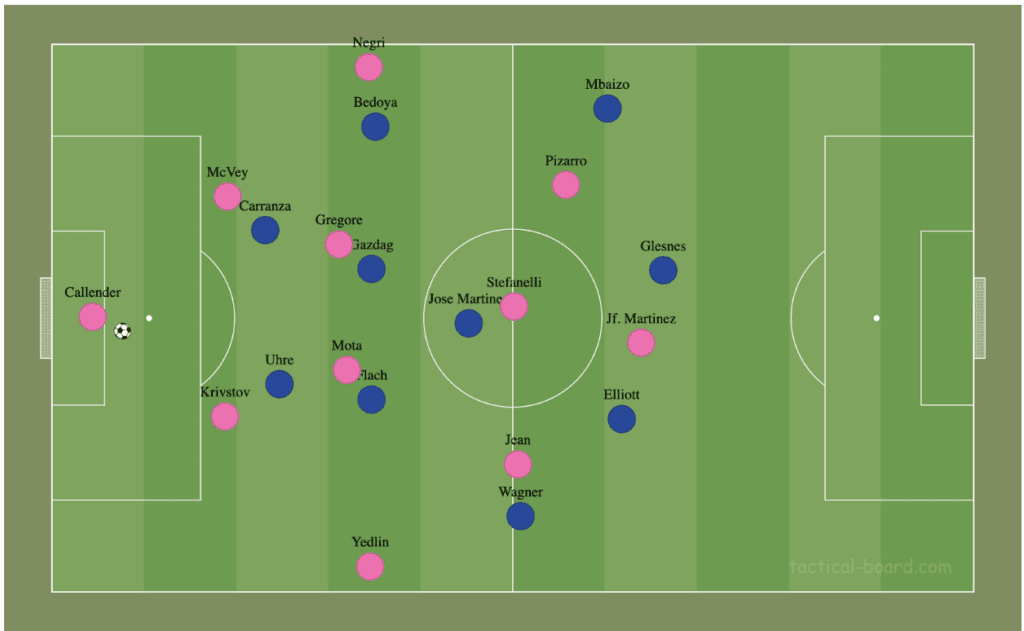
The Union were effectively daring Callender to hit controlled balls to Yedlin. Bedoya often tucked inside to help with Gregore, and the Union did their best in the first half to swarm Gregore and Mota. Calendar often had to hit balls long towards Jean and Josef Martínez and the Union cleaned them up easily. When Yedlin did receive the ball in possession, Wagner immediately stepped, triggering some strong pressing actions.
Jose Martínez was up to his usual stuff, destroying plenty of action and winning the ball in dangerous areas (Union attacking left goal):
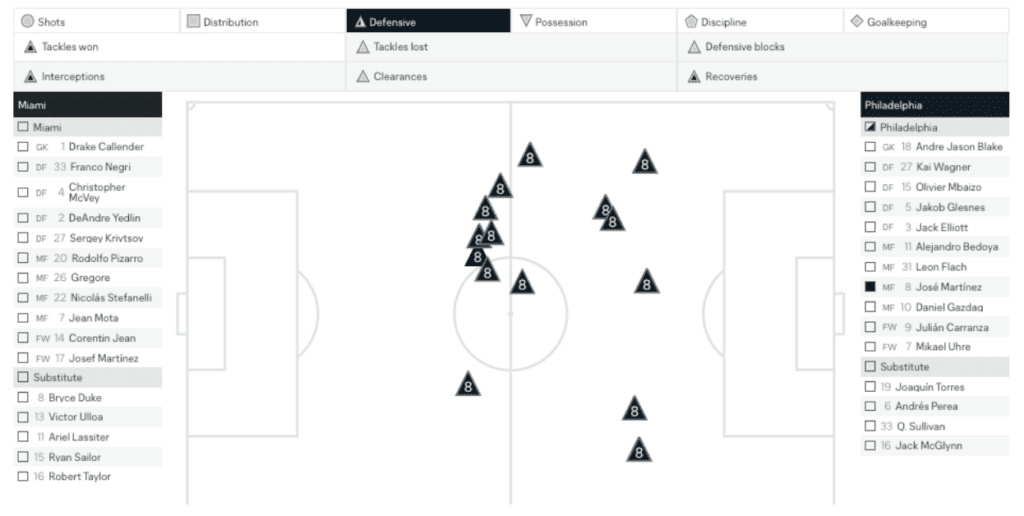
Eight recoveries right around midfield is usually conducive to jump starting plenty of transition opportunities. Most of Miami’s possession in the first half was fruitless, and the Union methodically forced the ball backwards towards the centerbacks and Callender, who they pressured into mistakes. Krivstov really only had one linebreaking pass in the first half, and while I remain impressed with him as a center back, he wasn’t hurting the Union’s press.
While the Union’s first goal came off distribution woes from Andre Blake, they almost immediately tied the game up three minutes later on a similar mistake from Callender. He launched a goal kick to the Union and it led to a one-on-one for Gazdag.
The chance went down as 0.4 xG, and Gazdag fired it right at Callender. It was the Union’s best chance of the night, and the type of chance that must be ruthlessly taken on the road to keep up. Gazdag is generally a good finisher with 17 goals on 12.5 xG last year without penalty kicks, so I can’t be too critical.
The Union did most of the right things in the second half to chase the game. Miami settled into a deeper block, and the Union began hammering away. Gazdag would drop into midfield to pick up the ball, spray it out wide, and the Union would send Carranza or Uhre behind the Miami line.
It just never clicked, and the Union’s best chance in the second half before Miami’s second goal was only 0.07 xG for Carranza. Gazdag in particular played the ball in behind on that chance.
The Union made their first subs in the 62nd minute with Jack McGlynn coming in for Leon Flach and Joaquin Torres coming in for Mikael Uhre. I was hoping the extra creation in passing from McGlynn and dribbling from Torres would make a difference, but in the 15 minutes before Miami’s second goal, it was more of the same for the Union.
McGlynn did end up with some strong passes, but his best came with the score already at 2-0.
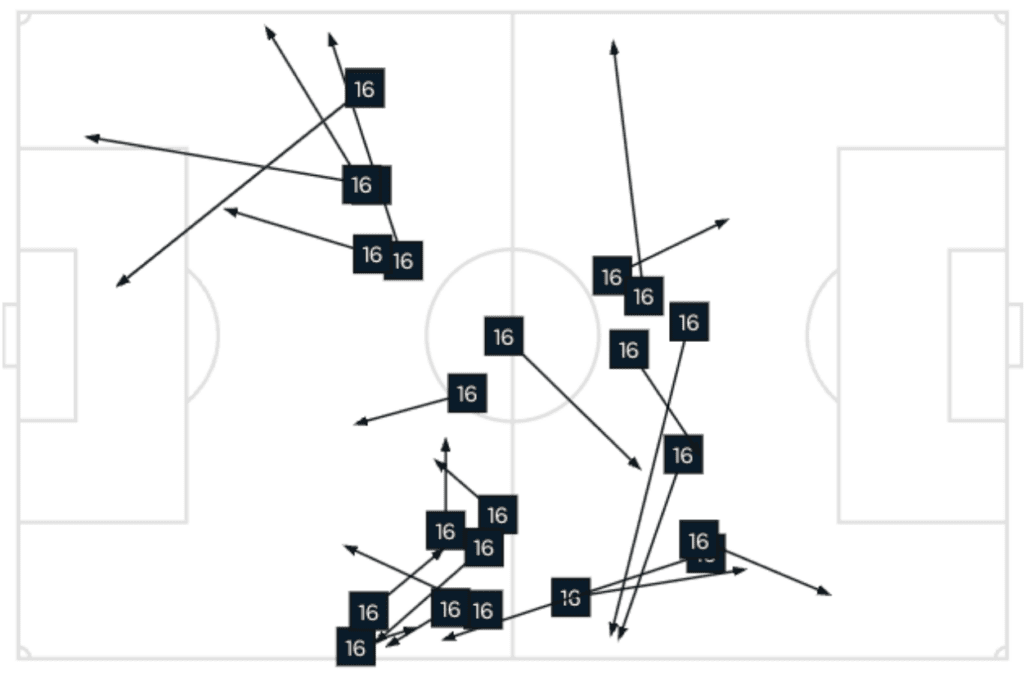
You can see the ability to play the ball into the final third, something Bedoya and Flach just do less:
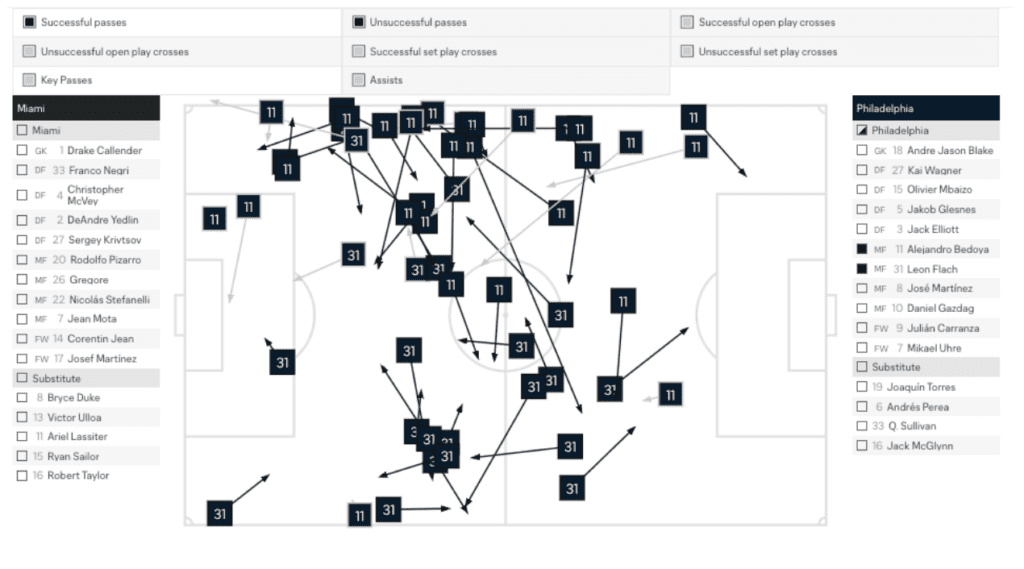
McGlynn and Torres combine to form one of the most potent changeups on the bench in the league and while they didn’t affect the outcome today, I suspect the Union will be able to save points and pad leads after the 60th minute more frequently than the average MLS team this season.
Ultimately, the Union were frustrated by a stout Miami side, and while I’m not changing my perception of them fully, a lot of credit must go to Gregore and Mota who give Miami a strong foundation in both directions. They routinely tracked back and did dirty defensive work near their own box, and kept possession well. Miami will eventually have to find ways to be dangerous in the final third, and there’s a summer signing that could help with that, but they’re going to arrive into every contest without bleeding chances, and that goes a long way.
As for the Union, they head to El Salvador for their Concacaf Champions League on Tuesday night against Alianza. Jim Curtin did not rotate his starting XI at all, which is on brand with his past decisions. I think it was a fine decision even with the result considered, and I’m now most interested to see the group he rolls with at the Cuscatlán, and what signal that sends about his plan.









